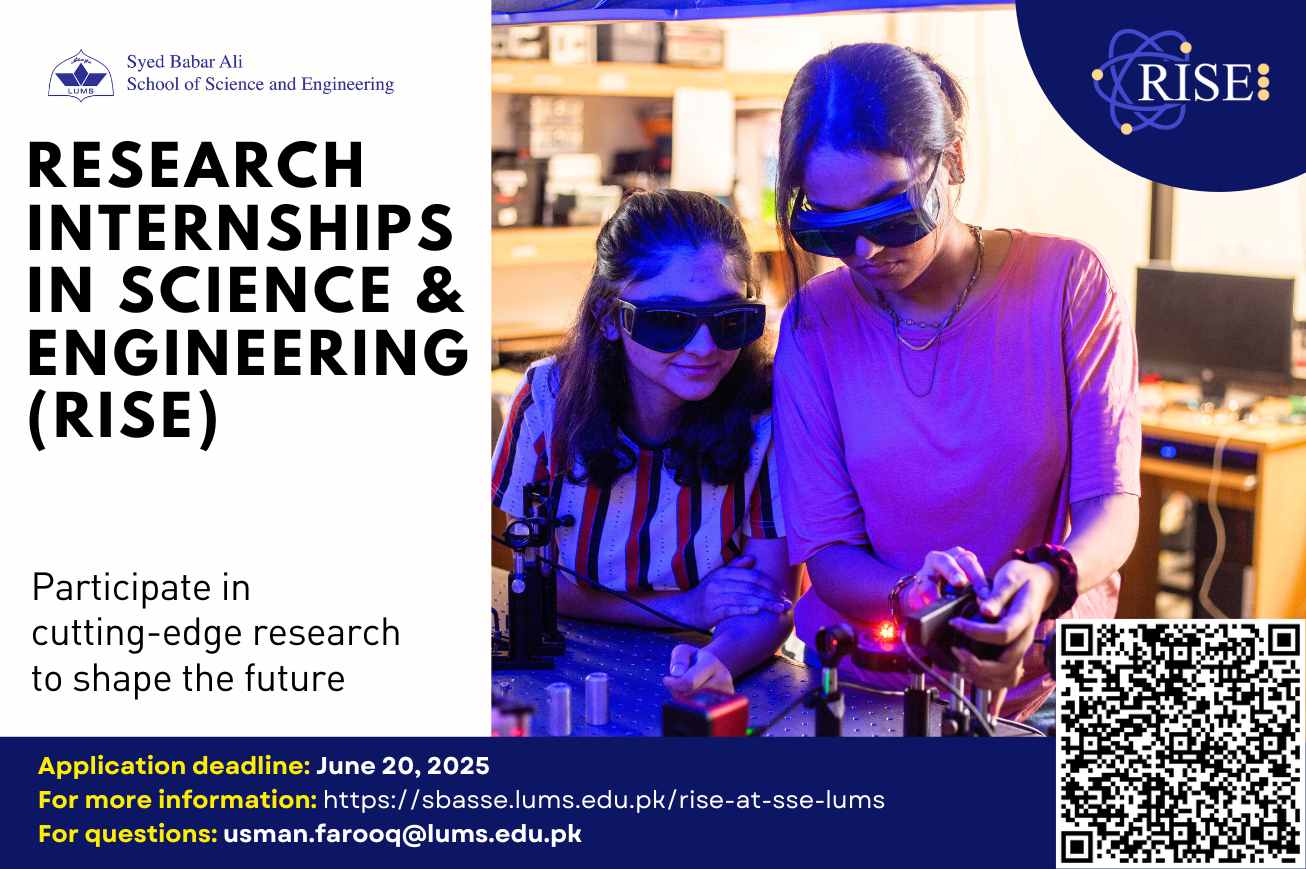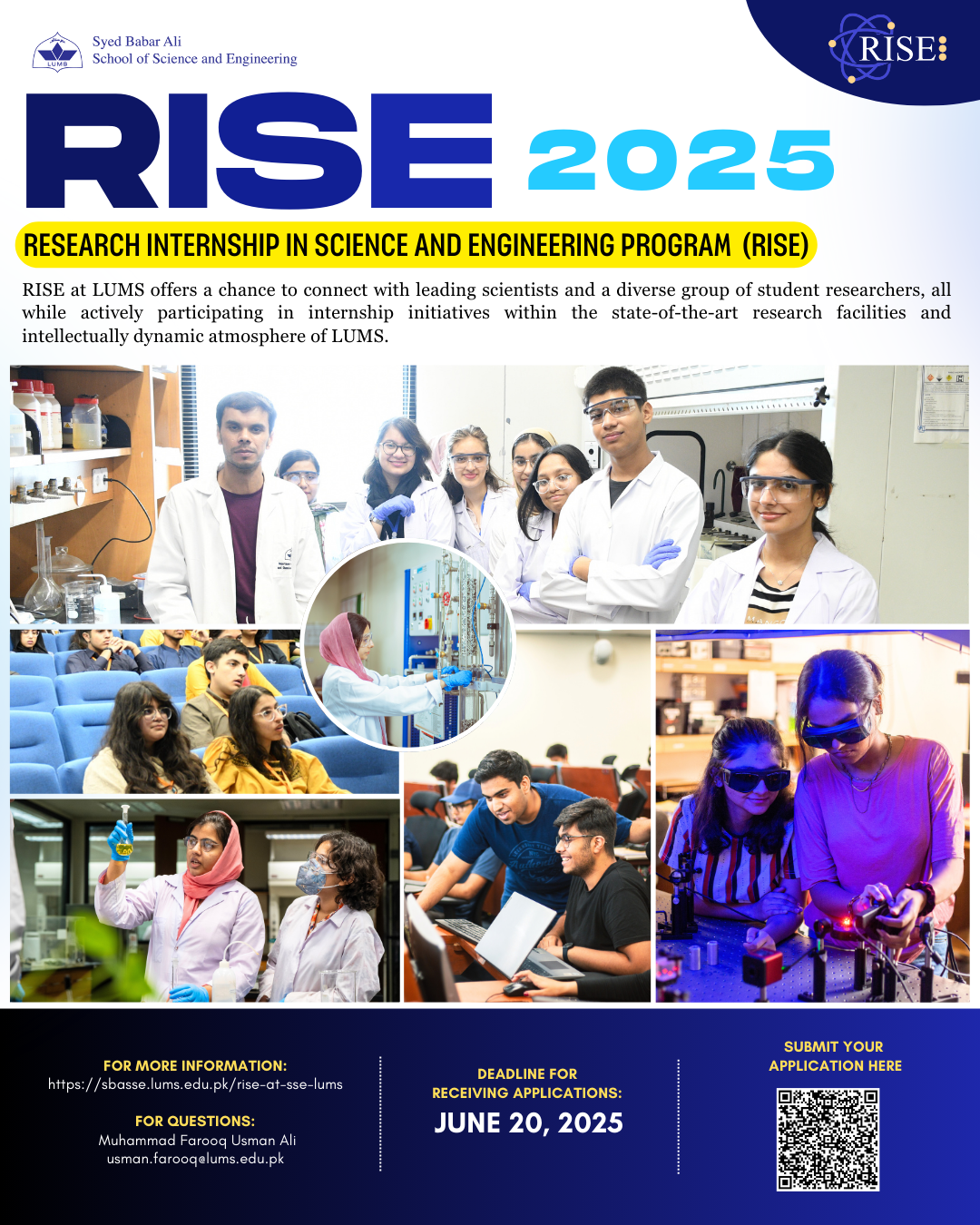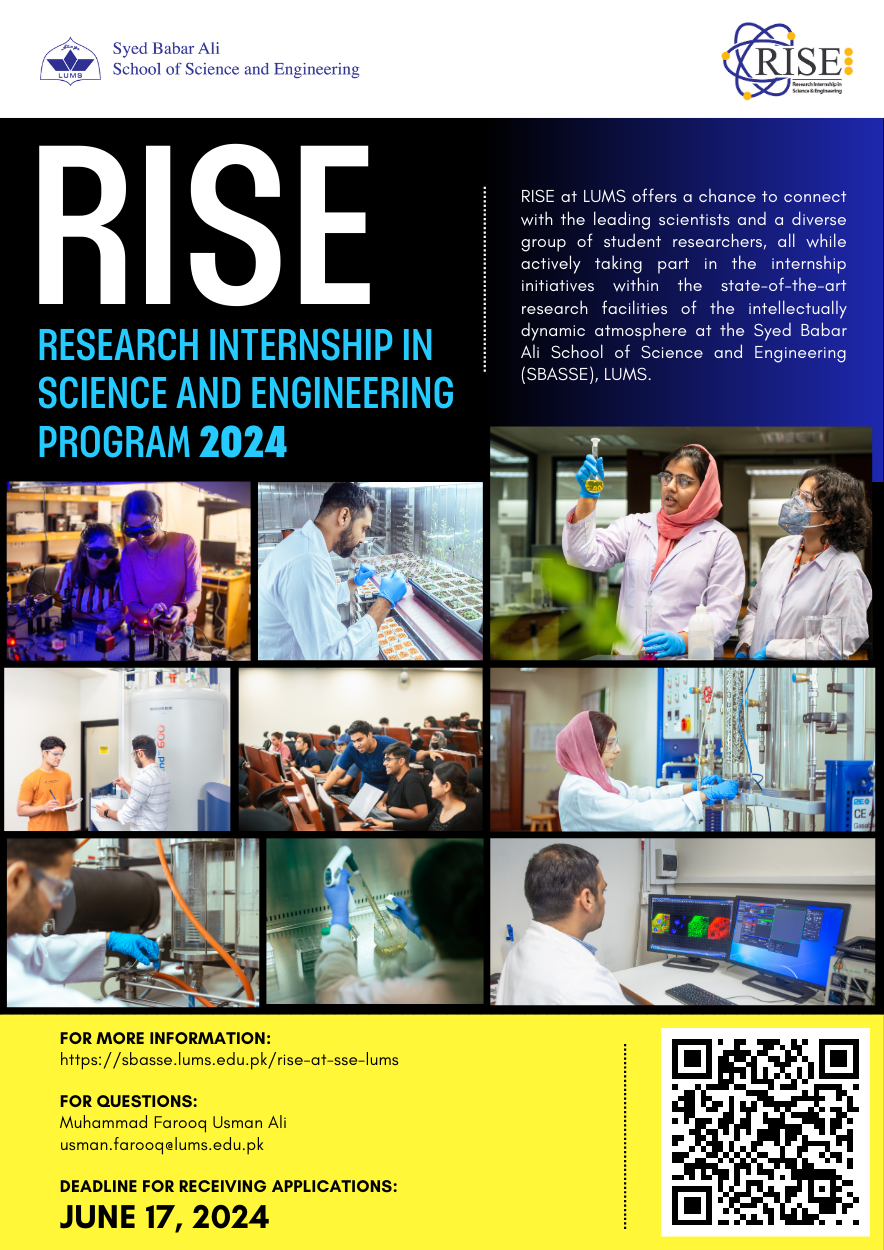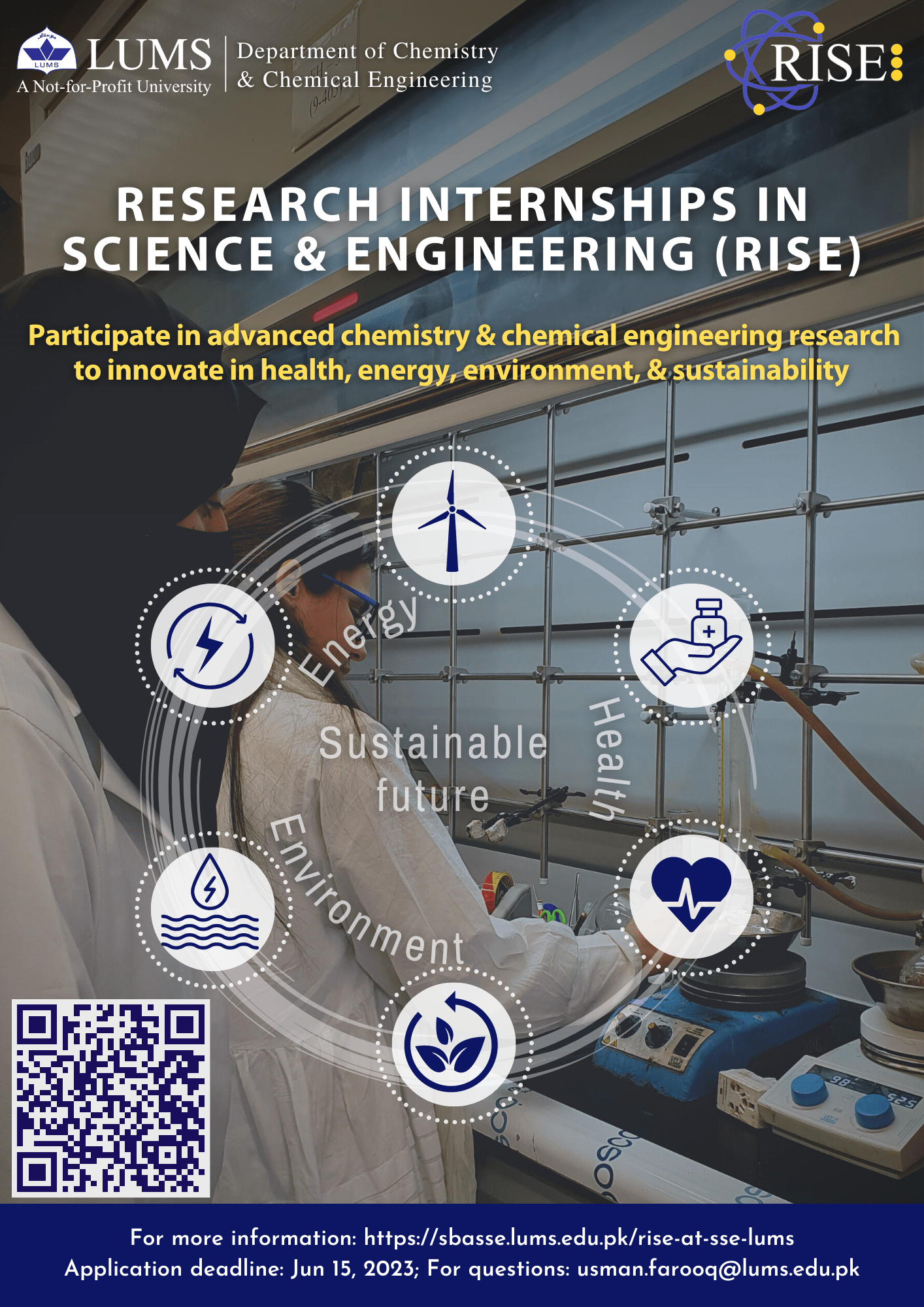Research Internships in Science and Engineering (RISE)
RISE is a research based internship program for STEM students

Introduction
The knowledge of various disciplines of Science, Technology, Engineering, and Mathematics (STEM) is the key to finding solutions to the ever evolving complex and interconnected global challenges related to health, energy, environment and sustainability as well as creating and capitalizing on new knowledge and associated unprecedented economic opportunities. Beside STEM, the knowledge of non-STEM disciplines are equally important for improving understanding of human society, advancing critical thinking, and fostering creativity that helps in developing new philosophical perspectives that shape culture and society. Considering the astronomical pace at which the knowledge and its implementation is expanding, it is imperative that the younger generation of students experience an early exposure to knowledge and develop abilities to effectively contribute to finding solutions to the emerging global challenges and benefit from the unprecedented new opportunities. Such exposures will equip young students with the relevant knowledge and skills that can have a long lasting and deep-rooted impact on their future academic and professional progress. Schools, generally, have limited resources when it comes to providing students with research opportunities in various STEM and non-STEM related fields. Universities, on the other hand, are knowledge hubs that are rich in highly skilled human resources and advanced research infrastructure. Following precisely designed research training programs, opening the doors of research active Universities for the students who are preparing to enter universities can help in exposing them to relevant knowledge at an early age. Such an exposure can prepare students not only for planning their own career but also equip them with the skills required to understand and respond to complex and emerging global challenges and opportunities. Fulfilling this need and enabling our future generations, LUMS has been offering the Research Internship in Science and Engineering (RISE) Program since 2023. RISE offers research-based internships where an internee spends 3-4 weeks in a research group and works on an intellectually stimulating research question. Each student or group of students works in the laboratory of a LUMS faculty member who serves as a mentor and research adviser. This year we are excited to offer internship opportunities to students interested in non-STEM disciplines as well. The RISE program managing team, in consultation with training faculty, matches the student interests to the available projects. The participating students become a contributing member of a research group and have the opportunity to contribute to cutting-edge research and thereby experience first-hand what it is like to be a scientist. In addition to the interaction with the leading scientists and diverse community of student researchers and undertaking their internship activities in the advanced research areas in an intellectually stimulating environment of LUMS, students also receive basic training and experience in best practices in scientific communication, they are exposed to potential conventional and unconventional career paths, and they also participate in an end of activity RISE Culminating Event where they showcase their learning. The RISE program aims to create an ecosystem that sparks enthusiasm among our future generations and facilitates students' training and early access to cutting-edge research.
Target Audience
The program is suitable for O/A level and Matric/F.A/F.Sc. students who are planning on pursuing degrees in STEM or non-STEM related disciplines.
Program Founder
Dr. Basit Yameen
Professor - Department of Chemistry & Chemical Engineering
Syed Babar Ali School of Science and Engineering | LUMS
For More Information Contact:
Madiha Rahman
madiha.rahman@lums.edu.pk
Communications and Partnerships Lead – Office of the Dean
Syed Babar Ali School of Science and Engineering | LUMS
Farooq Usman
usman.farooq@lums.edu.pk
Manager - Department of Chemistry & Chemical Engineering
Syed Babar Ali School of Science and Engineering | LUMS
Mujahid Rasheed
mujahid.rasheed@lums.edu.pk
Operations Specialist - Department of Chemistry & Chemical Engineering
Syed Babar Ali School of Science and Engineering | LUMS
Amal Tanveer Ahmad
27100216@lums.edu.pk
RISE Program – Student Team Lead
Syed Babar Ali School of Science and Engineering | LUMS




